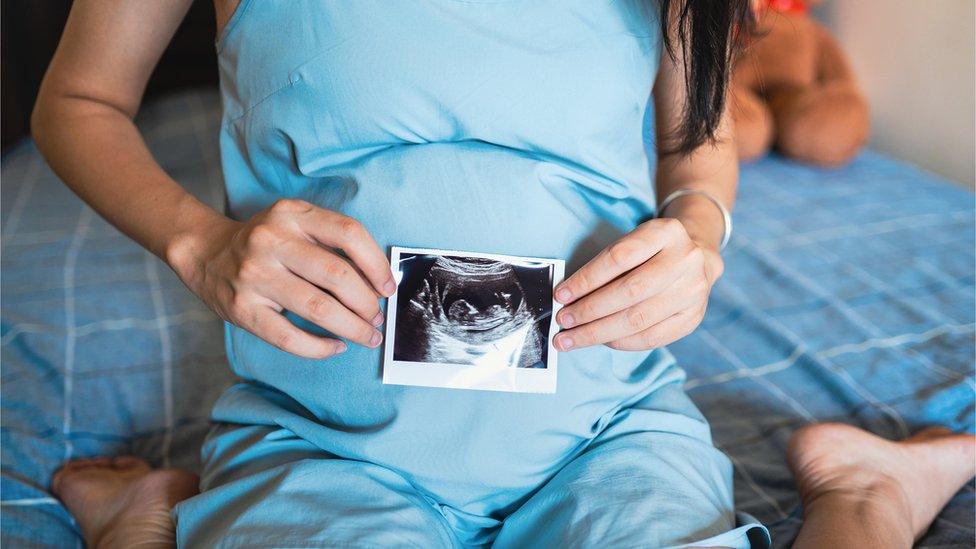Diabetes: Increase in the number of people living with the condition in NI
- Published
During the last year, 3,500 more people were diagnosed with diabetes in Northern Ireland
The number of people living with diabetes in Northern Ireland has increased.
During the last year, 3,500 more people were diagnosed with the condition here.
Diabetes UK said more awareness is needed around the reality of what life is like with diabetes.
It is an autoimmune condition that results in the body not being able to produce enough insulin to control blood glucose. There are two main types of the condition.
Type 1 is when an individual's pancreas produces no, or very little, insulin - an important hormone which helps turn food into energy.
Diabetes prevalence has more than doubled in just under 20 years from 51,541 to 111,806.
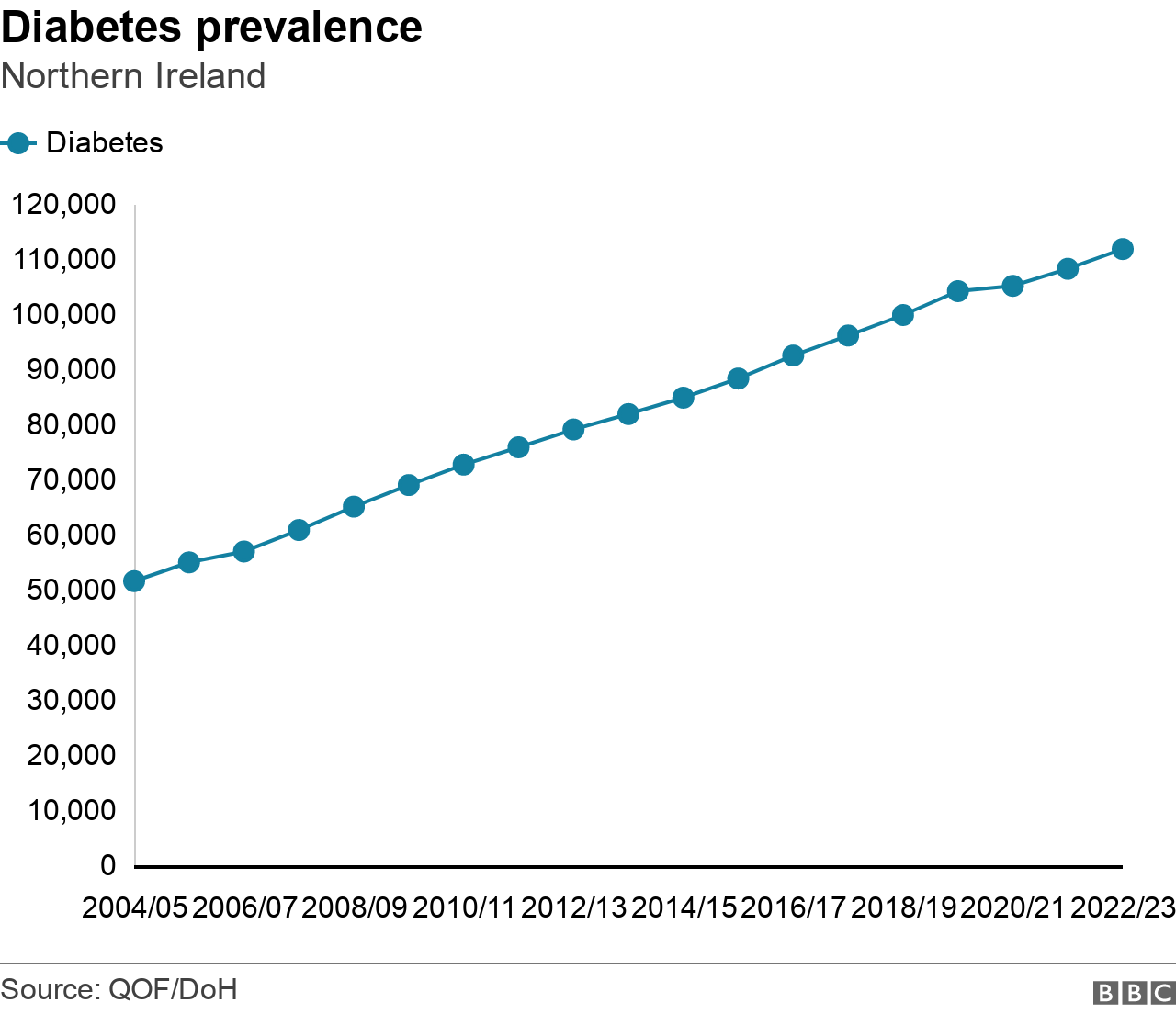
This means people with the condition have to closely monitor levels of sugar, or glucose, in the blood and top up their levels of insulin every day using injections or an insulin pump.
High blood sugar levels over a long period of time can result in complications like kidney failure, eye problems and heart attacks.
Type 2 diabetes is more common and occurs when the cells in the body become resistant to insulin and so more is needed to keep blood glucose levels within a normal range.
It can usually be controlled through diet, exercise and close monitoring.
Gestational diabetes is high blood sugar that develops during pregnancy.
It usually disappears after giving birth, but this is not always the case.
'You are not alone'
Gemma Bell-Gibson, from Bangor, County Down, said she became very anxious after developing type 1 diabetes after pregnancy.
"I didn't know how it was going to impact my family and led to me just overthinking everything.
"On top of that I have a lifelong needle phobia and I knew I would need to inject insulin as part of my condition, so at the start I just couldn't think straight."
Ms Bell-Gibson said this anxiety began affecting her health.
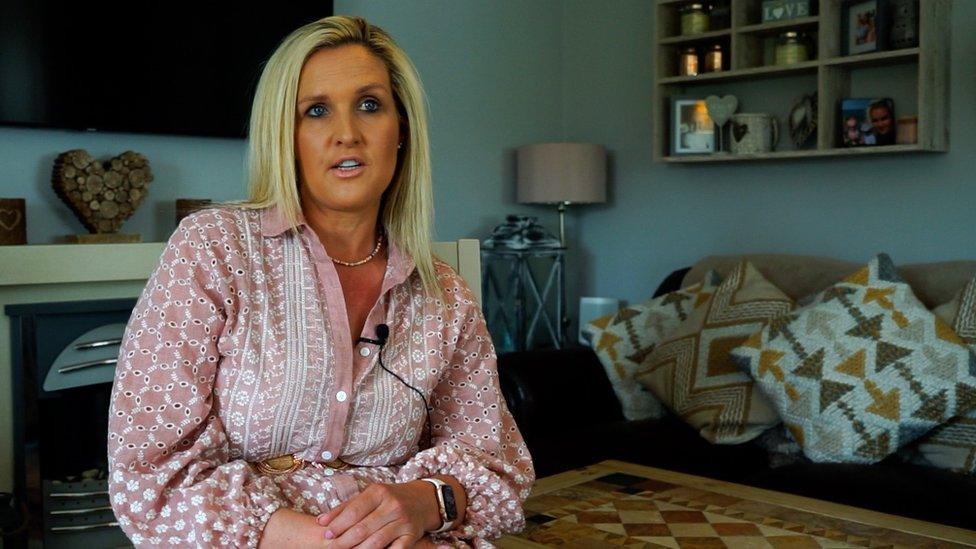
Gemma Bell-Gibson was diagnosed with type 1 diabetes after pregnancy
She said: "Night time was the worst when I was in my bed, I was afraid my blood sugars could drop really low and I wouldn't wake to hear my baby cry.
"There was a 10-year period of basically sleepless nights where I would lie awake and constantly be getting up to check my blood sugar levels."
During the pandemic, Ms Bell-Gibson made some lifestyle changes and she said she is now in a much better place.
"I'm now on a stricter, healthier journey, which helps me sleep better and I know I've nothing to be ashamed of or embarrassed about."
She is a member of one of the Live Well Hubs set up by Diabetes UK that operate across Northern Ireland.
Ms Bell-Gibson added: "For me it's important to raise awareness to let people know there's so many of us out there and you're not alone."
'It was a wakeup call'
Jack McClean is a member of the Ballymena Live Well Hub and was diagnosed with type 2 diabetes four years ago.
The 80-year-old said: "My wife died three years ago, and going to the group helps me manage my condition and understand it more."
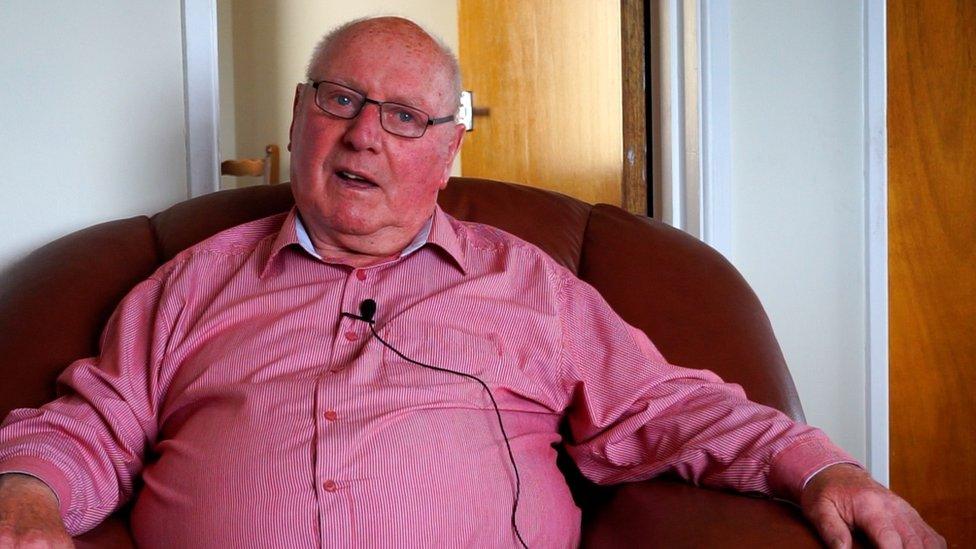
Jack McClean said attending a group helps him watch what he eats and ensure he takes the right medication
He added: "I know now my diet wasn't good, I was taking too much sweet stuff like cake and things like that.
"But getting the diagnosis and going to the group has given me the wakeup call I needed to watch what I eat and take the right tablets. So I'm doing my best."
Diabetes is now the third highest condition for prevalence in Northern Ireland after hypertension and asthma based on the latest data up to March 2023.
The figures collected by the Department of Health relate to individuals aged 17 and over.
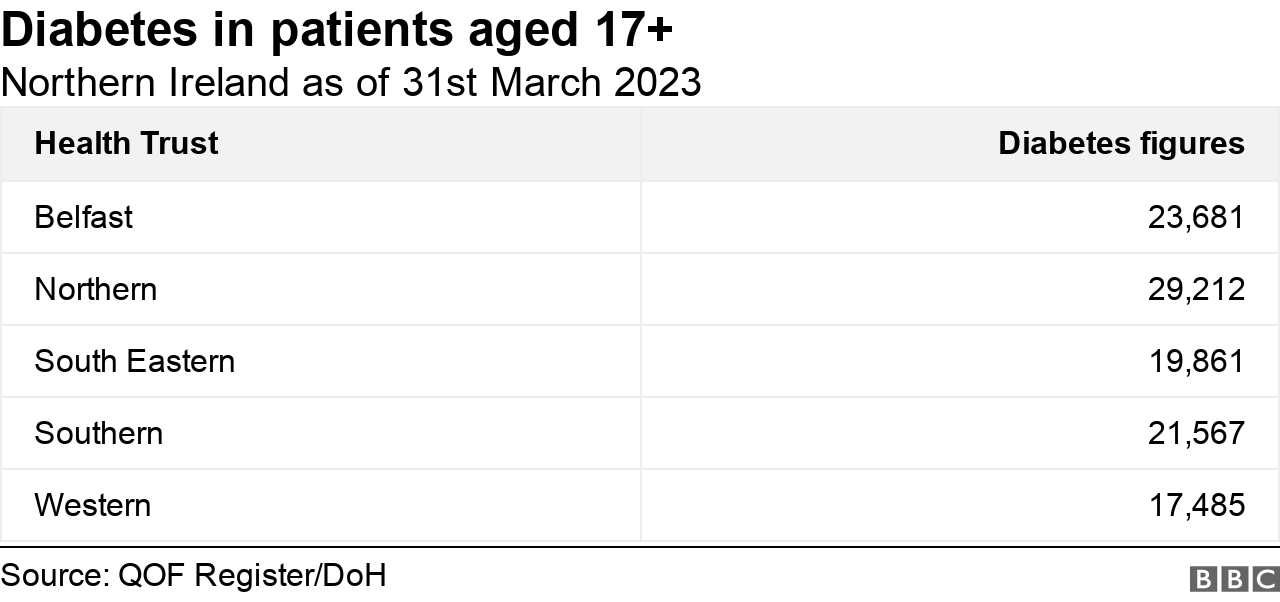
There was an increase of more than 1,300 people diagnosed in the Northern Trust alone during the last year.
The Northern Trust said it could not say for certain the reasons behind the increase but pointed out it has the largest geographical area of Northern Ireland's health trusts. The trust also highlighted the wider increasing trend of obesity.
For the first time, the latest Department of Health figures have also included people with blood sugars that are higher than normal but are not considered diabetic.
This currently sits at 66,009 for Northern Ireland.
Prevention
Tina McCrossan, Northern Ireland director of Diabetes UK, said that the number of people with diabetes in Northern Ireland - almost 112,000 - can be hard to visualise.
"But in Northern Ireland terms think of 12 full capacity Belsonic concerts, and all of those people are living with this tough, relentless condition, which affects people's physical health and emotional wellbeing."
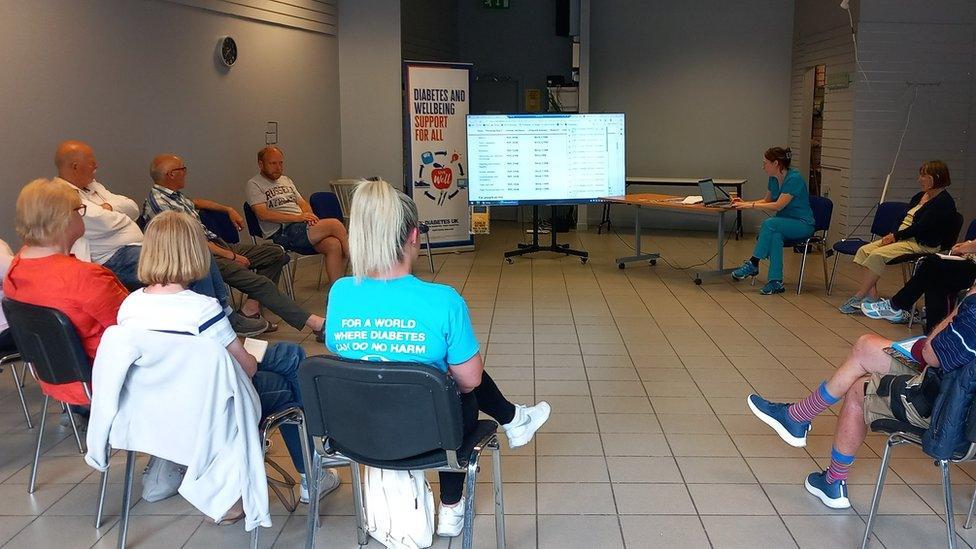
Diabetes UK run a number of Live Well Hubs throughout Northern Ireland
As part of Diabetes Awareness Week - which runs until Sunday 18 June - the charity is trying to raise awareness around the issue of prevention.
Ms McCrossan said: "We all know the health budget is under pressure and while we can't prevent type 1 right now, there are measurable steps that can be taken in many cases of type 2."
She added: "We would argue that investment should be put into prevention to not only positively impact the lives of people who are living with or at risk of type 2 but to also help alleviate pressures on our healthcare service and make savings.
"In turn, these savings could be reinvested to ensure that all people living with diabetes have access to the support they need, when they need it."
Related topics
- Published16 June 2022
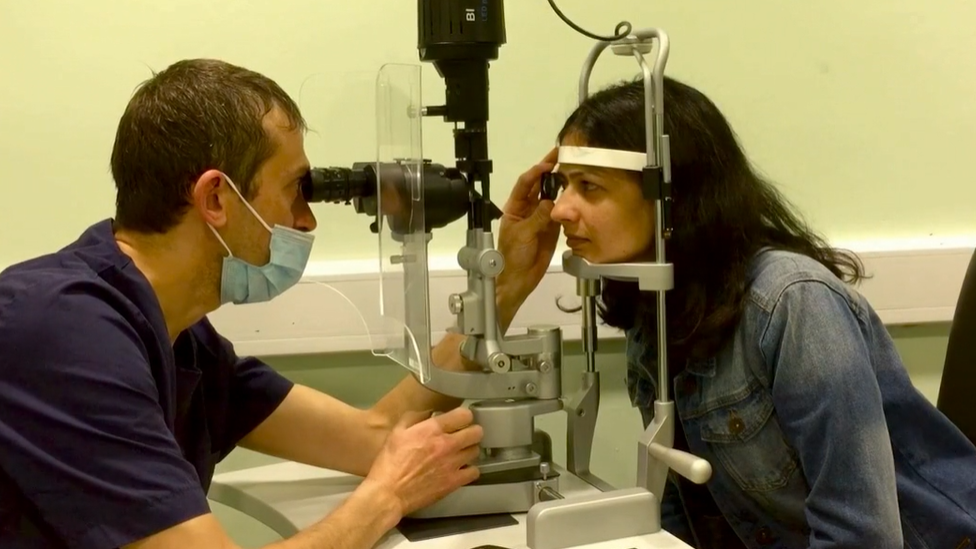
- Published26 August 2022
